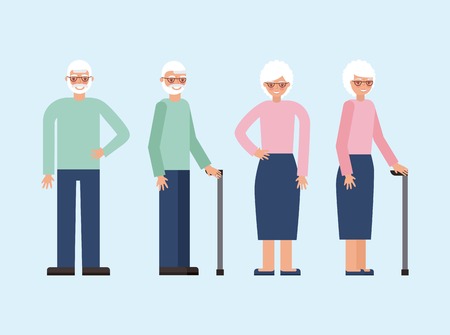Introduction to the British Context
When discussing the intricate relationship between mental health and physical rehabilitation, it is essential to consider the distinctive landscape of the United Kingdom. The UK’s National Health Service (NHS) provides a unique, universal framework that shapes how individuals experience both mental and physical healthcare. Historically, British society has often treated mental and physical health as separate entities; however, evolving attitudes are gradually bridging this gap. Within the NHS, there is a growing recognition of the interplay between psychological wellbeing and recovery from physical illness or injury. This shift is reflected in public discourse and policy, but challenges remain—particularly regarding stigma, resource allocation, and integration of services. By positioning our exploration within this context, we can better understand both the opportunities and obstacles faced by those navigating rehabilitation in Britain today.
2. Understanding Mental Health in Physical Rehabilitation
In the context of British clinical practice, mental health is increasingly recognised as a pivotal factor influencing physical rehabilitation outcomes. The relationship between psychological wellbeing and recovery is not merely anecdotal; it is backed by a growing body of UK-based research and NHS guidelines that underscore the importance of holistic care. Patients facing musculoskeletal injuries, post-operative recovery, or neurological conditions often experience anxiety, depression, or feelings of isolation, which can significantly hinder their rehabilitation progress.
The Psychological Dimension in Recovery
British clinicians are attentive to the psychological needs of patients, integrating mental health screening as part of initial assessments. For example, physiotherapists and occupational therapists routinely employ validated tools such as the Hospital Anxiety and Depression Scale (HADS) or the Patient Health Questionnaire (PHQ-9) to identify those at risk. This approach acknowledges that emotional distress can reduce motivation, adherence to exercise regimens, and overall engagement with therapy.
Patient Experiences: Voices from Across the UK
Recent surveys by organisations like Mind and the Chartered Society of Physiotherapy have highlighted patient perspectives on this issue. Many report that feeling heard and supported emotionally is just as important as physical interventions. In British rehab settings, especially within NHS Trusts, multi-disciplinary teams collaborate to deliver tailored support – sometimes referring patients for psychological therapies alongside their physical treatment.
Impact of Psychological Wellbeing on Rehabilitation Outcomes
| Mental Health Factor | Effect on Physical Rehabilitation (UK Context) |
|---|---|
| Anxiety/Depression | Lower participation in therapy; slower progress; increased risk of dropout |
| Positive Coping Strategies | Improved adherence to exercises; enhanced resilience during setbacks |
| Social Support Networks | Greater motivation; reduced feelings of isolation common in long-term NHS recovery pathways |
| Poor Sleep/Stress | Reduced healing rates; higher perception of pain; longer hospital stays |
The integration of mental health considerations into physical rehabilitation reflects a distinctly British commitment to patient-centred care. As the landscape evolves, both policy makers and clinicians across the UK are championing initiatives that bridge these domains—ultimately aiming for better recovery trajectories and improved quality of life for patients nationwide.

3. Key Challenges in Integration
Integrating mental health support within physical rehabilitation services presents several notable challenges across the UK. One of the most significant barriers remains cultural stigma surrounding mental health. Despite ongoing public awareness campaigns, many individuals still hesitate to discuss psychological concerns, especially in settings traditionally focused on physical recovery. This reluctance can lead to underreporting of symptoms and less engagement with available support services.
On a systemic level, there are logistical and structural hurdles to contend with. The NHS, while striving to provide holistic care, often faces resource limitations that result in siloed service provision. Mental health professionals and physical rehabilitation teams may operate separately, making collaborative care more difficult to achieve. Referral pathways can be unclear or inconsistent, meaning that patients who would benefit from integrated support might slip through the cracks.
Furthermore, training for rehabilitation practitioners does not always include sufficient emphasis on identifying and addressing psychological needs. Without adequate preparation, some clinicians may feel ill-equipped or uncomfortable addressing mental health topics during physical rehabilitation sessions. This gap can inadvertently reinforce the divide between mental and physical healthcare.
Finally, regional disparities exist in access to integrated care across the UK. Urban centres may have better access to multidisciplinary teams and mental health resources compared to rural or underserved areas, where specialist services are less readily available. This variation can create inequalities in patient outcomes depending on location and local commissioning priorities.
4. Community-Based Approaches
The United Kingdom has long recognised the importance of community-driven initiatives in promoting both mental and physical wellbeing, particularly throughout the rehabilitation process. These grassroots programmes play a vital role in bridging support networks, making holistic recovery more accessible to diverse populations.
Grassroots Initiatives: The Heart of Local Support
Across Britain, local charities, peer support groups, and social enterprises are stepping up to fill the gaps where statutory services may fall short. For example, organisations such as Mind’s “Get Set to Go” and the NHS-funded “Social Prescribing” scheme enable individuals recovering from illness or injury to access tailored mental health support alongside physical activity opportunities. These initiatives foster a sense of belonging, which is crucial for both psychological resilience and sustained physical progress.
Integrated Rehabilitation Services
Community-based approaches often focus on collaboration between healthcare professionals, voluntary groups, and service users themselves. This integration ensures that rehabilitation plans consider both physical and mental health needs. Below is an overview of how different UK community schemes bridge this gap:
Scheme Name |
Main Focus |
Mental Health Support |
Physical Rehabilitation Support |
|---|---|---|---|
| Social Prescribing (NHS) | Holistic patient care via community activities | One-to-one support, counselling referrals | Exercise classes, gardening clubs, walking groups |
| MIND Get Set to Go | Mental health through sport and activity | Peer mentors, group discussions on wellbeing | Guided fitness sessions tailored for abilities |
| Local Wellbeing Hubs | Integrated drop-in centres for all ages | Mental health workshops, helplines, therapy access | Physiotherapy advice, group rehab exercises |
Cultural Sensitivity in British Communities
A key aspect of successful community-based approaches is cultural sensitivity. Many UK initiatives make concerted efforts to engage BAME (Black, Asian and Minority Ethnic) communities and other underrepresented groups by offering multilingual support and respecting diverse attitudes towards mental health and disability. This inclusive ethos helps reduce stigma and encourages broader participation.
Tangible Outcomes for Individuals in Rehabilitation
The collaborative nature of these grassroots programmes not only addresses immediate physical needs but also fosters long-term psychological growth. Testimonials from participants regularly highlight improvements in confidence, social connectedness, and overall satisfaction with their rehabilitation journey. By embedding mental health support within physical rehabilitation frameworks at the community level, the UK continues to set a strong example for integrated care models worldwide.
5. Policy and Professional Perspectives
Within the UK, the interplay between mental health and physical rehabilitation has increasingly become a focal point in both policy-making and clinical practice. The National Health Service (NHS) recognises that recovery from physical injury or illness is closely linked to psychological wellbeing, a view reflected in several national policies, such as the NHS Long Term Plan and the Mental Health Act. These documents underline the importance of integrating mental health support into physical rehabilitation pathways, aiming for a more patient-centred approach. Allied health professionals (AHPs), including physiotherapists, occupational therapists, and speech and language therapists, play a pivotal role in delivering this holistic care. Their work often involves not just restoring physical function but also supporting patients’ emotional resilience through motivational interviewing, cognitive-behavioural strategies, and personalised goal setting. In practice, best-practice guidelines from organisations like the National Institute for Health and Care Excellence (NICE) recommend regular mental health screening within rehabilitation settings and advocate for multidisciplinary teams that can address both physical and psychological aspects of recovery. By reviewing current UK policies and professional frameworks, it becomes clear that successful rehabilitation is no longer seen as merely a matter of physical progress; rather, it is about fostering an environment where mental health is treated as an integral part of every patients journey towards regaining independence and quality of life.
6. Looking Forward: Innovations and Opportunities
The intersection of mental health and physical rehabilitation is an area witnessing rapid innovation across the UK, with an increasing emphasis on integrated care models. Current trends highlight a move towards more holistic approaches in NHS trusts and private clinics alike, where mental wellbeing is considered just as critical as physical recovery. Technologies such as telehealth platforms, virtual reality (VR) therapy, and digital self-management tools are now being piloted to support both aspects of patient care. In particular, VR programmes are showing promise in helping patients manage anxiety or depression during physiotherapy sessions, thus improving adherence and outcomes.
Embracing Digital Health Solutions
Digital health innovations have begun to reshape how British practitioners deliver rehabilitation services. Mobile apps designed for mindfulness, cognitive behavioural therapy (CBT), or guided exercise routines are increasingly used alongside traditional rehab protocols. These tools can empower patients to track their own progress, set achievable goals, and maintain motivation between appointments – all factors shown to support better mental health during recovery.
Collaborative Practice and Education
Another emerging trend is the strengthening of interdisciplinary collaboration among healthcare professionals. Physiotherapists, occupational therapists, psychologists, and social workers are working more closely than ever before. This collaborative ethos is being further reinforced through continuing professional development (CPD) opportunities that highlight the psychological dimensions of rehabilitation. Many UK universities and NHS trusts now offer specialised training modules focused on the practical integration of mental health support within rehab pathways.
Opportunities for the Future
Looking ahead, there is significant potential for further research and investment in this field. Developing tailored interventions that reflect local British communities’ needs—such as culturally sensitive resources for diverse populations or bespoke support for rural areas—is a key opportunity. Additionally, policy frameworks like those promoted by NICE continue to evolve, encouraging the seamless integration of mental and physical health in routine practice. As awareness grows and technology advances, the UK’s approach to rehabilitation stands poised to become even more person-centred, ensuring that every patient receives comprehensive care for both body and mind.


